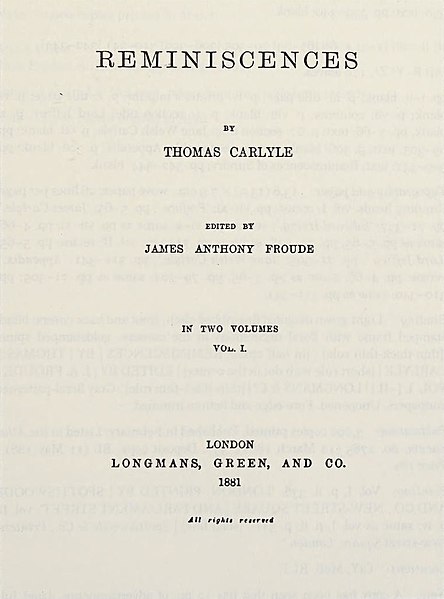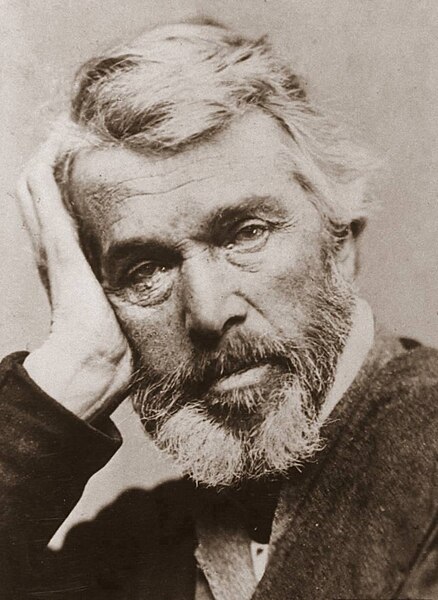Reminiscences is a book by historian and social critic Thomas Carlyle, posthumously published in 1881, which contains two lengthy memoirs of the author's wife, Jane Welsh Carlyle, and friend Edward Irving, together with shorter essays on his father and some of the literary friends of his youth. The book's emphasis primarily rests on Carlyle's relationship with the subjects. The book was begun in 1832 but mainly written in the year following Jane Carlyle's death, in April 1866. Many of its first readers were shocked by the impression it gave of a harsh, gloomy, censorious personality and of a man racked by remorse over his failings as a husband; it did Carlyle's reputation as the sage and prophet of the Victorian era lasting harm. Nevertheless, it is characterized by great vividness and accuracy of detail, and by a comparatively direct, conversational style, and has been called an autobiographical masterpiece.
Title page of the first English edition
Jane Welsh Carlyle, who was commemorated in her husband's Reminiscences, wrote her own memoirs but burned the manuscript before her death.
The statue of Carlyle on Chelsea Embankment, sculpted by Joseph Edgar Boehm The shadow cast on Carlyle's reputation by the publication of the Reminiscences almost stalled the campaign to raise this monument.
"Froude besmirching Carlyle", illustration from Punch's Almanac, 31 December 1881
Thomas Carlyle was a Scottish essayist, historian, and philosopher from the Scottish Lowlands. A leading writer of the Victorian era, he exerted a profound influence on 19th-century art, literature, and philosophy.
Portrait c. 1865
Thomas Carlyle's Birthplace
Silhouettes of Carlyle's father and mother with captions in Carlyle's hand
Plaque at 22A Buccleuch Place, Edinburgh








